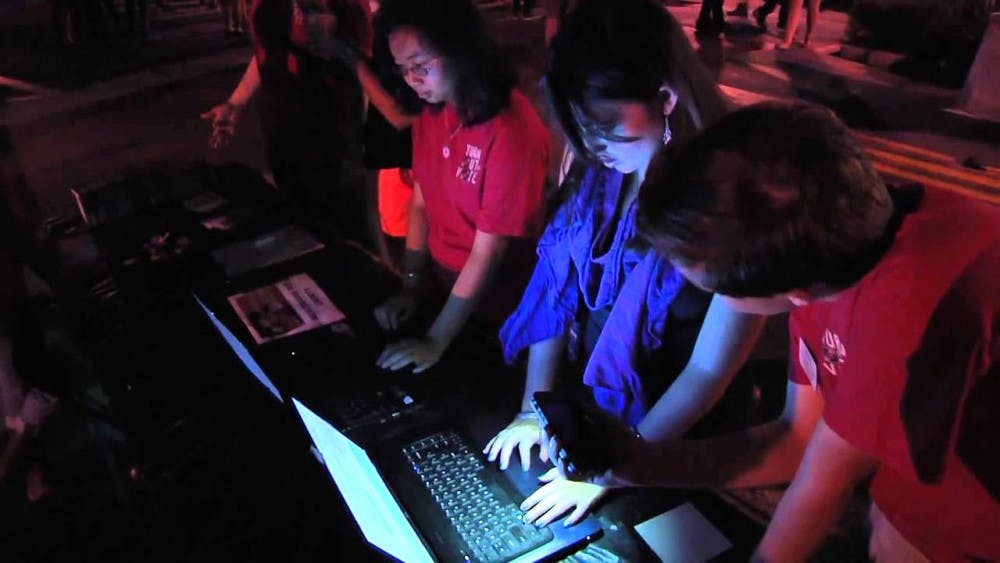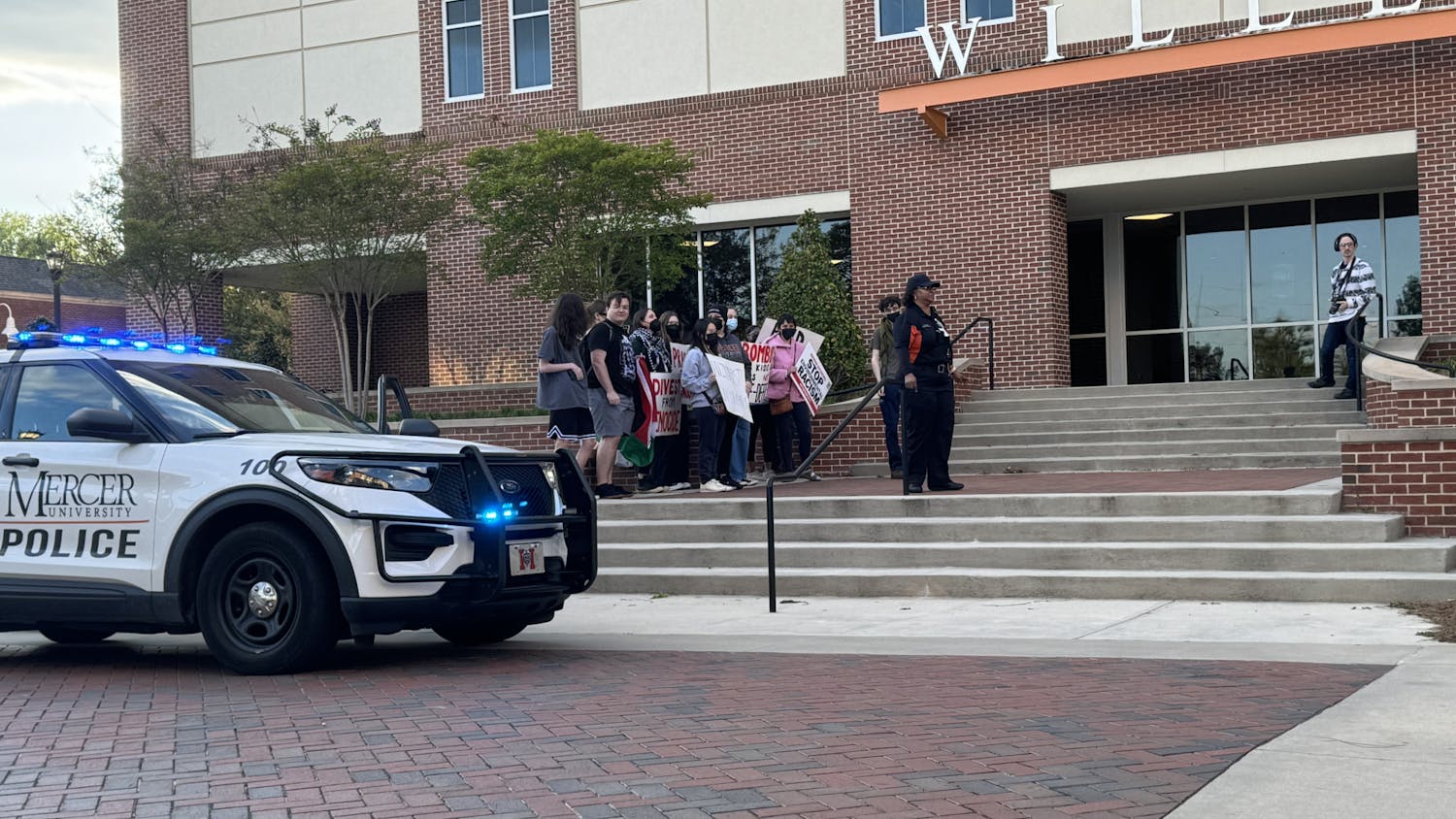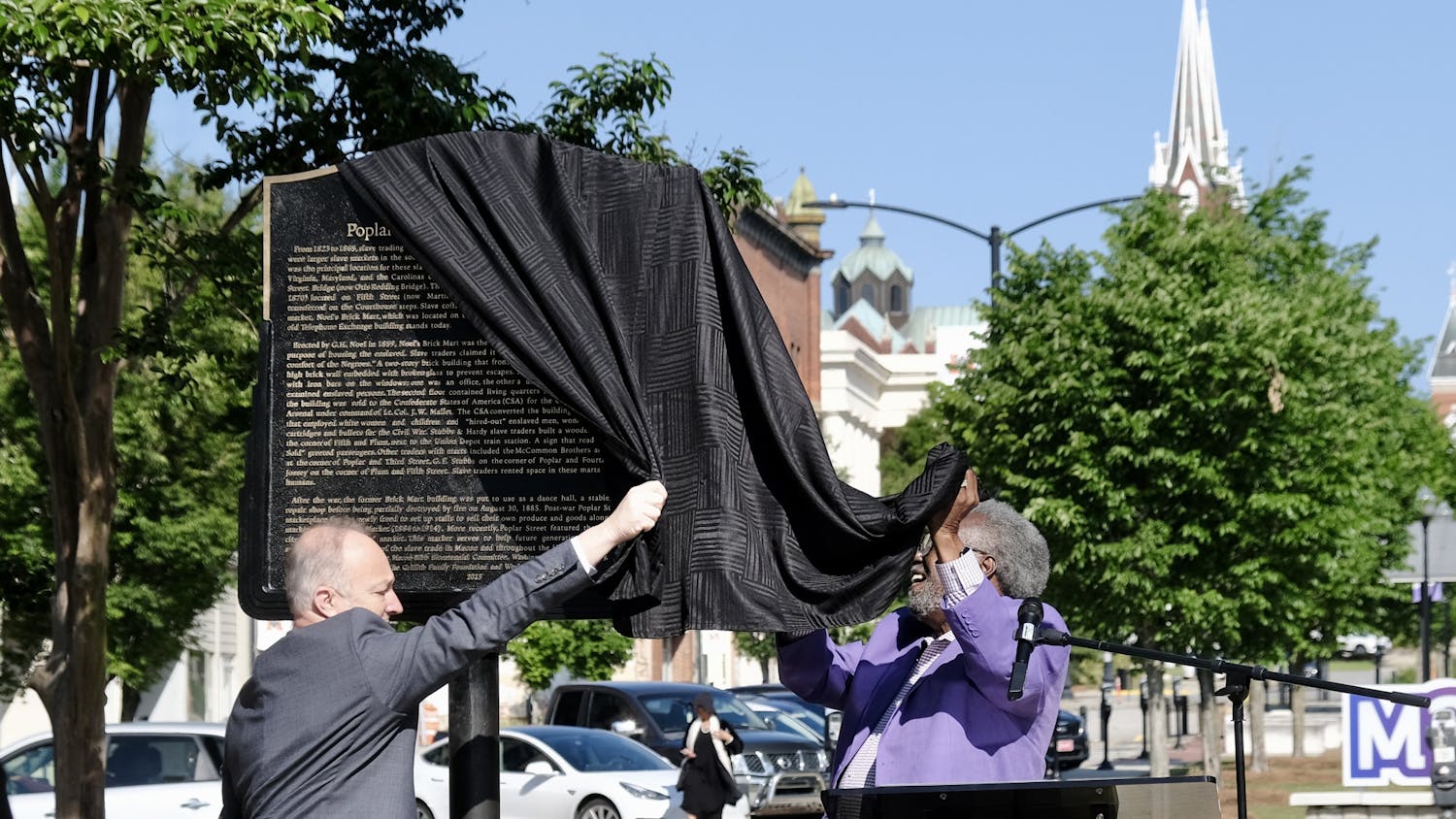Driving up to the polling station in Dublin, Georgia on a Friday afternoon, the line stretched for a three-hour wait to vote in the 2012 presidential election.
Joey Wozniak, a freshman at Mercer University at the time, decided along with his father that it was not worth the wait.
At this time, Wozniak did not know about early voting, absentee ballots or the voting process in general.
“That is a process issue, and that’s a barrier to voting,” said Wozniak, now a senior at Mercer. “We as students have a lot of those.”
Wozniak, along with other Mercer faculty members and students, are starting an initiative to make it easier and more fun to vote for college students and to develop a better election culture on campus.
The first act to improve voter participation was held on Tuesday, Sept. 22 in the Connell Student Center lobby.
For National Voter Registration day, Wozniak and others set up a table equipped with two computers to sign students up for TurboVote.
TurboVote is a part of Democracy Works, a “nonpartisan nonprofit dedicated to the idea that voting should fit the way we live,” according to its website at turbovote.org.
TurboVote is designed for students to easily register to vote, receive absentee ballots, and simplify the voting process.
Students learned about TurboVote in an email sent out on Tuesday and professors in the College of Liberal Arts allowed students to sign up for it in the first five minutes of their classes.
“If we show students the steps to do these things and reduce the difficulty with the process, we hopefully entice more students to vote,” said Carrie Ingoldsby, director of campus life and student involvement, in an email.
The second event will be the annual Civic Engagement Symposium in November. It will be a three hour event with three parts: an election simulation, a workshop and a speaker all to engage students in voter participation.
Wozniak said they will be encouraging students to converse and engage in the conversation instead of sitting back and listening to the speakers.
“It’s going to be a lot of chaos,” Wozniak said. “It’s going to be fun.”
Wozniak said he is very excited about two initiatives.
First, Wozniak, along with faculty and students, are creating a democratic engagement plan to collect ideas about how to create a better election culture on college campuses.
Second, they are brainstorming ways to get other institutions of higher education to encourage voting in the student body.
Instead of thinking of students speaking their mind and gaining power against the institutions, Wozniak said they want institutions to encourage and empower students to voice their opinions, vote and speak up when a wrong is done.
An initiative created by Wozniak and others interested in the project is to create a competition in the Southern Conference for schools to compete in civic and metric participation.
Each institution within the Southern Conference can have a team to compete with other schools.
The teams can be creative in their plans by creating a playbook, naming captains and anything else they can think of to engage students in civic participation, Wozniak said.
Since his generation has just spent 14 years in the education system and is now moving into the workforce, Wozniak said college students have the best perspective in the two major issues in politics: education and jobs.
“One of the founding principles behind higher education in this country was to create an informed citizenship,” said Douglas Pearson, dean of students, in an email. “Therefore, instilling a sense of civic engagement is just as important to Mercer as helping our students to chose a major or career.”
Wozniak said Simeon Cullens, a sophomore senator of the Student government Association, is going to lead the rallying of students and get students who aren’t involved in major campus organizations to participate.
Cullens said he believes it is important to have leaders and specific people involved on campus, but everyone should have a chance to speak up and share their opinions through voting.
“I feel like it’s important for me to be involved in different things, but I can’t do everything on campus, and I can’t represent everyone on campus,” Cullens said.
Cullens said education in how to vote and what people are voting for is the key to getting participation from students, and that is the place he plans to begin to increase student participation.
“We are powerless unless we vote, unless we speak up,” Wozniak said.
Mercer tries to increase voter participation

Students signing up to vote at last semester's "Turn Out to Vote" event to encourage student voter participation.




